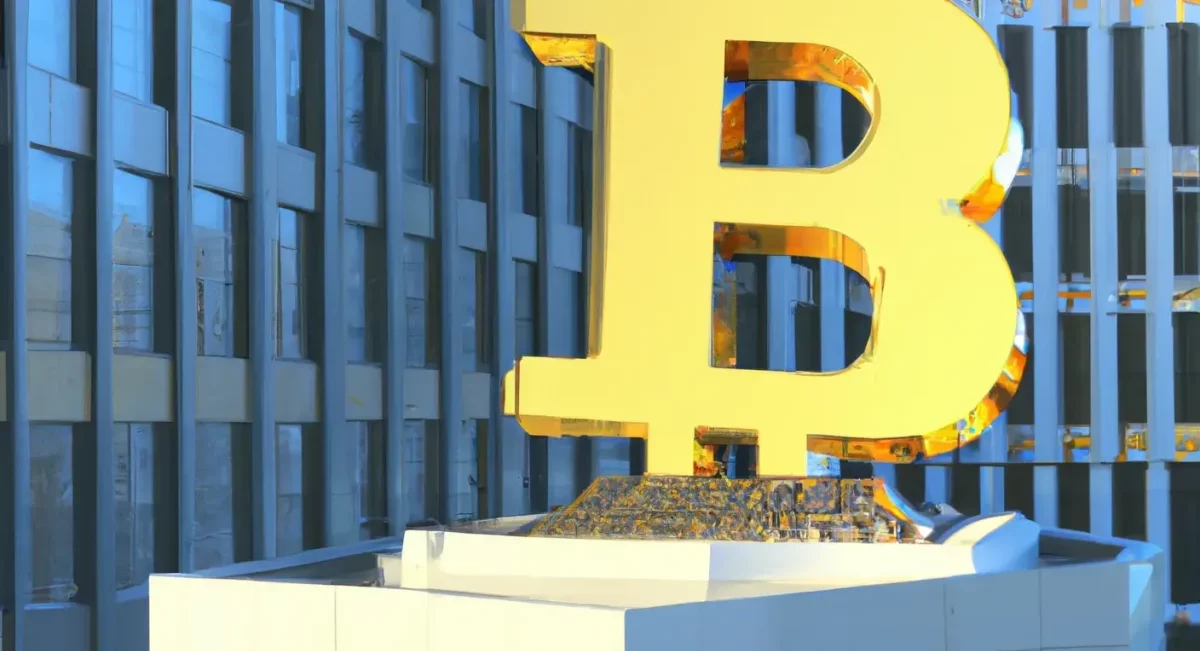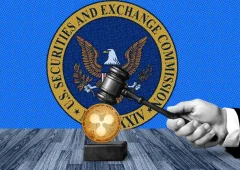U.S. State Proposes Allocating 10% of Public Funds to Bitcoin
19.03.2025 22:00 1 min. read Alexander Zdravkov
North Carolina is making a significant move towards adopting Bitcoin as part of its fiscal strategy with the introduction of SB327.
This bill allows the State Treasurer to invest up to 10% of the state’s public funds into Bitcoin (BTC) as a way to diversify and strengthen its reserves.
The bill comes with specific guidelines to ensure the safe management and transparency of the Bitcoin holdings. It mandates that the cryptocurrency be stored in multi-signature cold wallets for enhanced security.
Regular audits will be conducted monthly to maintain transparency and verify the holdings, reinforcing the state’s commitment to accountability. Furthermore, the sale of Bitcoin will be heavily restricted, only permitted in cases of dire financial need, and under strict guidelines.
READ MORE:

JUST IN: SEC to Drop Appeal Against Ripple
With SB327, North Carolina is joining a growing trend across the United States, where several states are looking into integrating Bitcoin into their financial frameworks.
This movement reflects the increasing interest in digital assets as a hedge against inflation and a step towards more diversified state reserves. The bill aligns with broader discussions on adopting crypto-friendly policies at the state and national levels.
-
1
Trump’s Two big Bitcoin Moves: Key Catalysts or Just Noise for BTC Price?
08.07.2025 7:30 2 min. read -
2
Speculation Surges as Binance BTC Futures Volume Tops $650 Trillion
04.07.2025 17:37 2 min. read -
3
Bitcoin Market Stalls as Profit-Taking, Whale Dispersal, and Sideways Action Define the Cycle
01.07.2025 20:00 3 min. read -
4
Which Is the Next Bitcoin Price Target?
06.07.2025 20:00 2 min. read -
5
Dollar Weakness Signals Major Bitcoin Move Ahead, Data Suggests
09.07.2025 21:00 2 min. read
Public Companies Now hold Over $100 Billion in Bitcoin — 4% of Total Supply
According to new data shared by Bitcoin Magazine Pro, publicly traded companies now collectively hold over 844,822 BTC, valued at more than $100.5 billion, marking a historic milestone for institutional Bitcoin adoption.
Trump Media Holds $2B in Bitcoin as Crypto Plan Expands
Trump Media and Technology Group, the parent company of Truth Social, Truth+, and Truth.Fi, has officially disclosed that it now holds approximately $2 billion in Bitcoin and Bitcoin-related securities.
Strategy Adds 6,220 BTC, Pushing Total Holdings Past 607,000
Michael Saylor’s Strategy has confirmed another major Bitcoin purchase, acquiring 6,220 BTC last week for approximately $739.8 million.
Bitcoin Open Interest Hits $42B as Funding Rates Signal Bullish Overextension
Bitcoin’s derivatives market is heating up, with open interest climbing back to $42 billion while funding rates continue to surge.
-
1
Trump’s Two big Bitcoin Moves: Key Catalysts or Just Noise for BTC Price?
08.07.2025 7:30 2 min. read -
2
Speculation Surges as Binance BTC Futures Volume Tops $650 Trillion
04.07.2025 17:37 2 min. read -
3
Bitcoin Market Stalls as Profit-Taking, Whale Dispersal, and Sideways Action Define the Cycle
01.07.2025 20:00 3 min. read -
4
Which Is the Next Bitcoin Price Target?
06.07.2025 20:00 2 min. read -
5
Dollar Weakness Signals Major Bitcoin Move Ahead, Data Suggests
09.07.2025 21:00 2 min. read

